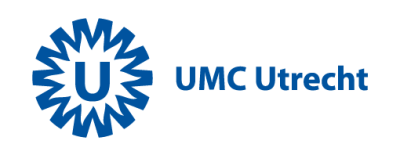Food for thought: does nutrition improve outcome after neonatal brain injury?
Perinatal brain injury can have lifelong consequences for the brain development of a child. Current treatment methods to positively impact the rapidly developing brain are very limited. Providing nutrients that serve as building blocks and cofactors for the synthesis of brain cells, will enable cell connections and growth of different brain structures, which in turn might improve brain development following injury. This has been demonstrated in animal models of brain injury and a recent pilot study in infants with brain injury. In this new collaboration between the department of Neonatology at the UMC Utrecht, Utrecht University and Danone Nutricia Research we will further investigate the effect of an early nutritional intervention (The Dolphin Concept) on brain development and neurodevelopmental outcome.
Fortunately, perinatal brain injury is rare. Approximately 1 in 1000 term born infants suffers from perinatal brain injury, whereas the incidence in the extremely preterm born infant (with a gestational age below 28 weeks) is much higher, around 30%. In both groups, brain injury may lead to delayed neurodevelopmental outcome and increased lifetime medical and societal costs. So far, there are few interventions that improve outcome and reduce costs. Studying the Dolphin concept may provide an easy, home-based intervention to improve outcome in this vulnerable population.
In this study, infants with brain injury will be randomized to receive either the Dolphin Concept or placebo during 12 months. MRI will be performed prior to start of the intervention and at 3 months of age. In addition, cognitive and language development will be monitored during the first two years of life, to correlate these measures to early MRI outcomes and the nutritional intervention.
If the study is successful, it will be an important step towards making this nutritional supplement available to babies with brain injury and improve their outcome.



